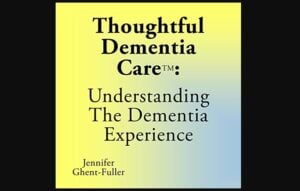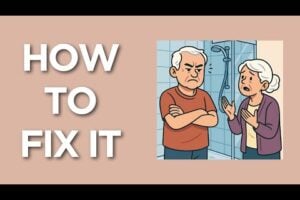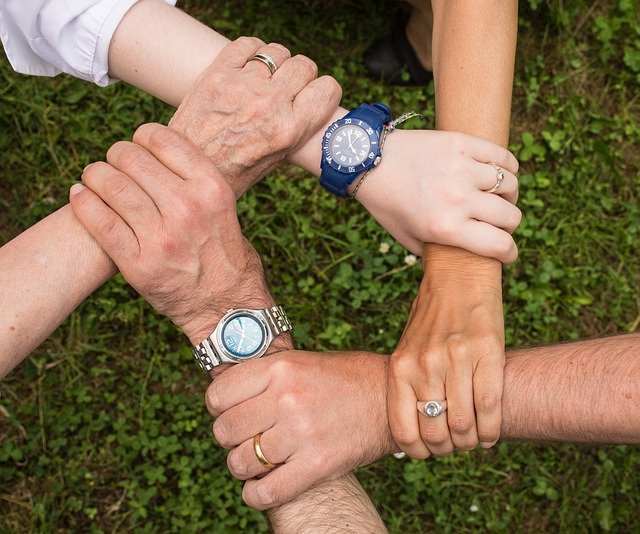A new University of Iowa study further supports an inescapable message: caregivers have a profound influence — good or bad — on the emotional state of individuals with Alzheimer’s disease. Patients may not remember a recent visit by a loved one or having been neglected by staff at a nursing home, but those actions can have a lasting impact on how they feel.
The findings of this study are published in the journal, Cognitive and Behavioral Neurology.
Sad and Happy Movies
UI researchers showed individuals with Alzheimer’s disease clips of sad and happy movies. The patients experienced sustained states of sadness and happiness despite not being able to remember the movies.
Emotional Life is Alive and Well
“This confirms that the emotional life of an Alzheimer’s patient is alive and well,” says lead author Edmarie Guzmán-Vélez, a doctoral student in clinical psychology, a Dean’s Graduate Research Fellow, and a National Science Foundation Graduate Research Fellow.
Guzmán-Vélez conducted the study with Daniel Tranel, UI professor of neurology and psychology, and Justin Feinstein, assistant professor at the University of Tulsa and the Laureate Institute for Brain Research.
Tranel and Feinstein published a paper in 2010 that predicted the importance of attending to the emotional needs of people with Alzheimer’s, which is expected to affect as many as 16 million people in the United States by 2050 and cost an estimated $1.2 trillion.
Treating Patients, Teaching Caregivers
“It’s extremely important to see data that support our previous prediction,” Tranel says. “Edmarie’s research has immediate implications for how we treat patients and how we teach caregivers.”
Despite the considerable amount of research aimed at finding new treatments for Alzheimer’s, no drug has succeeded at either preventing or substantially influencing the disease’s progression. Against this foreboding backdrop, the results of this study highlight the need to develop new caregiving techniques aimed at improving the well-being and minimizing the suffering for the millions of individuals afflicted with Alzheimer’s.
For this behavioral study, Guzmán-Vélez and her colleagues invited 17 patients with Alzheimer’s disease and 17 healthy comparison participants to view 20 minutes of sad and then happy movies. These movie clips triggered the expected emotion: sorrow and tears during the sad films and laughter during the happy ones.
Remembering Scenes Vs. Remembering Feelings
About five minutes after watching the movies, the researchers gave participants a memory test to see if they could recall what they had just seen. As expected, the patients with Alzheimer’s disease retained significantly less information about both the sad and happy films than the healthy people. In fact, four patients were unable to recall any factual information about the films, and one patient didn’t even remember watching any movies.
Before and after seeing the films, participants answered questions to gauge their feelings. Patients with Alzheimer’s disease reported elevated levels of either sadness or happiness for up to 30 minutes after viewing the films despite having little or no recollection of the movies.
Emotions Far Outlasted Memories
Quite strikingly, the less the patients remembered about the films, the longer their sadness lasted. While sadness tended to last a little longer than happiness, both emotions far outlasted the memory of the films.
The fact that forgotten events can continue to exert a profound influence on a patient’s emotional life highlights the need for caregivers to avoid causing negative feelings and to try to induce positive feelings.
Empowering Caregivers
According to Guzmán-Vélez, simple things that can have a lasting emotional impact on a patient’s quality of life and subjective well-being include:
- Frequent visits
- Social interactions
- Exercise
- Music
- Dance
- Jokes
- Serving patients their favorite foods.
Guzmán-Vélez says, “Our findings should empower caregivers by showing them that their actions toward patients really do matter.”
Source:
Journal Reference:
- Cognitive And Behavioral Neurology:
Feelings Without Memory in Alzheimer Disease.
DOI: 10.1097/WNN.0000000000000020












It’s sure ain’t a simple balance to achieve.
"Feelings matter most in dementia care" (Sheard, D.). Truly outstanding dementia care focuses on the emotional well-being of the person living with dementia.
http://archive.freep.com/article/20130214/NEWS06/302140241/Harold-still-courts-his-wife-Marion-who-stricken-with-Alzheimer-s-has-forgotten-him
Read this article about my wife with Alzheimers now going on 14 years.
Your blessed…14 years. Wow.
Yes, this is my experience with my Mom <3
I blog about my journey with her here: http://myalzheimersstory.com/